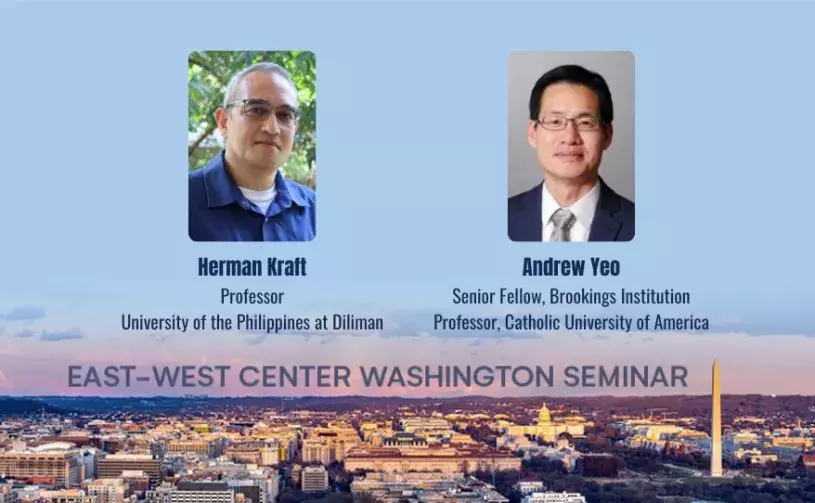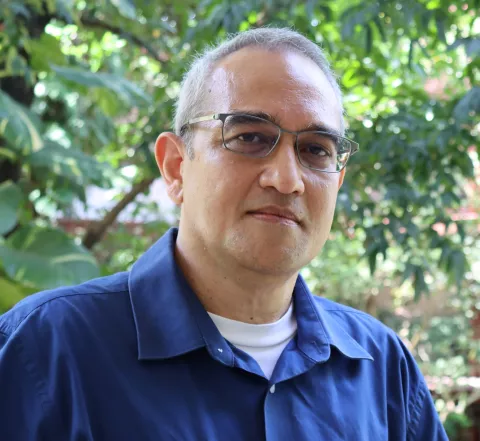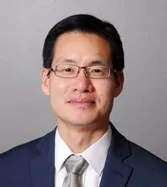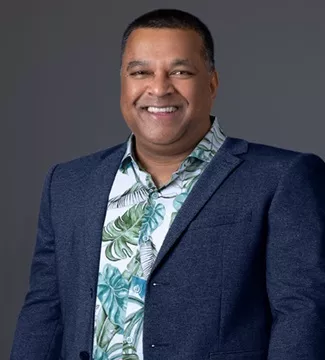Error message

OFFICE/DEPARTMENT
The East-West Center in Washington invites you to an
Indo-Pacific Foreign Policy and Defense Series Seminar:
ASEAN in the US Indo-Pacific Strategy
A Conversation With:
Herman Kraft
Professor
University of the Philippines at Diliman
Andrew Yeo
Senior Fellow, Brookings Institution
Professor, Catholic University of America
Dr. Satu Limaye (Moderator)
Vice President, East-West Center &
Director, Research Program and East-West Center in Washington
Amidst the intensifying strategic competition between the United States and China, the member-states of the Association of Southeast Asian Nations (ASEAN), collectively and individually, have sought to maintain good relations with both superpowers while maintaining their “strategic autonomy.” Yet, the Biden Administration has identified ASEAN as one of the key partners in the execution of the United States’ Indo-Pacific Strategy. This strategy seeks to position the U.S. more advantageously in its strategic competition with China. In what way does the United States see ASEAN as a role player in its Indo-Pacific Strategy? Are there clear objectives in its Indo-Pacific Strategy that ASEAN is best positioned to help the US attain? Given their concern about having to take sides in the strategic competition between the US and China, what are US expectations of what can be achieved with ASEAN?

Herman Joseph S. Kraft is a member of the faculty of the Department of Political Science at the University of the Philippines at Diliman, Quezon City. He is currently affiliated with the Catholic University of America as a Visiting Researcher under the Fulbright US-ASEAN program. He is also the Convenor of the Strategic Studies Program of the Center for Integrative and Development Studies at the University of the Philippines. He has been working on issues that involve the Association of Southeast Asian Nations (ASEAN) and regional security in Southeast Asia. His current research is on “ASEAN in the US Indo-Pacific Strategy.”

Andrew Yeo is a senior fellow and the SK-Korea Foundation Chair at the Brookings Institution’s Center for East Asia Policy Studies. He is also a professor of politics at The Catholic University of America in Washington, D.C.
In addition to his most recent book, “State, Society, and Markets in North Korea” (Cambridge University Press 2021), he is the author or co-editor of four other books: “Asia’s Regional Architecture: Alliances and Institutions in the Pacific Century” (Stanford University Press, 2019); “North Korean Human Rights: Activists and Networks” (Cambridge University Press 2018); “Activists, Alliances, and Anti-U.S. Base Protests” (Cambridge University Press 2011); and “Living in an Age of Mistrust: An Interdisciplinary Study of Declining Trust in Contemporary Society and Politics and How to Get it Back” (Routledge Press 2017).
Yeo is currently working on a project that examines South Korea’s role in the Indo-Pacific region and how South Korea can support a rules-based order outside its traditional focus on Northeast Asia. He is also conducting research that examines marketization in North Korea and its impact on state-society relations. His research also covers the Indo-Pacific strategies of the United States and its allies, Asia’s regional architecture and institutional change, U.S. grand strategy and force posture, and the role of narratives and discourse in international relations. As a scholar working at the intersection of international relations and comparative politics, he also has an interest in studying civil society, social and transnational movements, and democratization.

Dr. Satu P. Limaye is Vice President of the East-West Center and Director of Research, East-West Center in Washington, and interim director of the Professional Development Program. He created and directs the Asia Matters for America initiative and is the founding editor of the Asia Pacific Bulletin. He is also a Senior Advisor at CNA Corp (Center for Naval Analyses). He is a graduate of Georgetown University and received his doctorate from Oxford University (Magdalen College) where he was a George C. Marshall Scholar.
He publishes and speaks on Indo-Pacific regional issues and supports various US government, foundation, fellowship, and professional organizations. He recently served on the Center for New American Security (CNAS) Task Force on the US-Philippines Alliance, United States Institute of Peace (USIP) Senior Study Group on the North Pacific, Project 2049 Study Group on the US-Australia Alliance, and Global Taiwan Institute-Taiwan Asia Exchange Foundation project on Taiwan’s New Southbound Policy. He serves on the Korea Economic Institute (KEI) Advisory Council and editorial board of East Asian Policy and regional editor of Global Asia.
The East-West Center in Washington invites you to an
Indo-Pacific Foreign Policy and Defense Series Seminar:
ASEAN in the US Indo-Pacific Strategy
A Conversation With:
Herman Kraft
Professor
University of the Philippines at Diliman
Andrew Yeo
Senior Fellow, Brookings Institution
Professor, Catholic University of America
Dr. Satu Limaye (Moderator)
Vice President, East-West Center &
Director, Research Program and East-West Center in Washington
Amidst the intensifying strategic competition between the United States and China, the member-states of the Association of Southeast Asian Nations (ASEAN), collectively and individually, have sought to maintain good relations with both superpowers while maintaining their “strategic autonomy.” Yet, the Biden Administration has identified ASEAN as one of the key partners in the execution of the United States’ Indo-Pacific Strategy. This strategy seeks to position the U.S. more advantageously in its strategic competition with China. In what way does the United States see ASEAN as a role player in its Indo-Pacific Strategy? Are there clear objectives in its Indo-Pacific Strategy that ASEAN is best positioned to help the US attain? Given their concern about having to take sides in the strategic competition between the US and China, what are US expectations of what can be achieved with ASEAN?

Herman Joseph S. Kraft is a member of the faculty of the Department of Political Science at the University of the Philippines at Diliman, Quezon City. He is currently affiliated with the Catholic University of America as a Visiting Researcher under the Fulbright US-ASEAN program. He is also the Convenor of the Strategic Studies Program of the Center for Integrative and Development Studies at the University of the Philippines. He has been working on issues that involve the Association of Southeast Asian Nations (ASEAN) and regional security in Southeast Asia. His current research is on “ASEAN in the US Indo-Pacific Strategy.”

Andrew Yeo is a senior fellow and the SK-Korea Foundation Chair at the Brookings Institution’s Center for East Asia Policy Studies. He is also a professor of politics at The Catholic University of America in Washington, D.C.
In addition to his most recent book, “State, Society, and Markets in North Korea” (Cambridge University Press 2021), he is the author or co-editor of four other books: “Asia’s Regional Architecture: Alliances and Institutions in the Pacific Century” (Stanford University Press, 2019); “North Korean Human Rights: Activists and Networks” (Cambridge University Press 2018); “Activists, Alliances, and Anti-U.S. Base Protests” (Cambridge University Press 2011); and “Living in an Age of Mistrust: An Interdisciplinary Study of Declining Trust in Contemporary Society and Politics and How to Get it Back” (Routledge Press 2017).
Yeo is currently working on a project that examines South Korea’s role in the Indo-Pacific region and how South Korea can support a rules-based order outside its traditional focus on Northeast Asia. He is also conducting research that examines marketization in North Korea and its impact on state-society relations. His research also covers the Indo-Pacific strategies of the United States and its allies, Asia’s regional architecture and institutional change, U.S. grand strategy and force posture, and the role of narratives and discourse in international relations. As a scholar working at the intersection of international relations and comparative politics, he also has an interest in studying civil society, social and transnational movements, and democratization.

Dr. Satu P. Limaye is Vice President of the East-West Center and Director of Research, East-West Center in Washington, and interim director of the Professional Development Program. He created and directs the Asia Matters for America initiative and is the founding editor of the Asia Pacific Bulletin. He is also a Senior Advisor at CNA Corp (Center for Naval Analyses). He is a graduate of Georgetown University and received his doctorate from Oxford University (Magdalen College) where he was a George C. Marshall Scholar.
He publishes and speaks on Indo-Pacific regional issues and supports various US government, foundation, fellowship, and professional organizations. He recently served on the Center for New American Security (CNAS) Task Force on the US-Philippines Alliance, United States Institute of Peace (USIP) Senior Study Group on the North Pacific, Project 2049 Study Group on the US-Australia Alliance, and Global Taiwan Institute-Taiwan Asia Exchange Foundation project on Taiwan’s New Southbound Policy. He serves on the Korea Economic Institute (KEI) Advisory Council and editorial board of East Asian Policy and regional editor of Global Asia.













